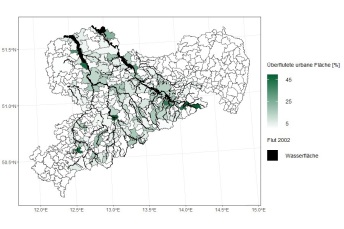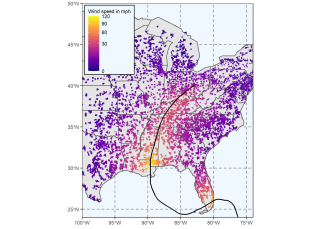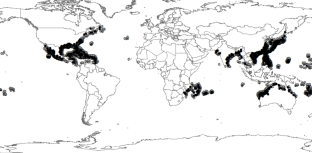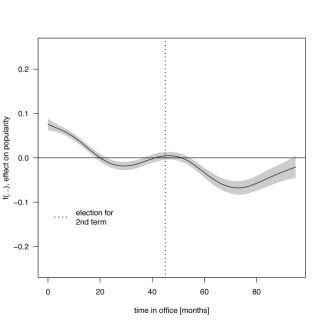
Featured Articles
Do floods scare off residents?
Michael Berlemann, Joel Methorst, Marcel Thum (2022), Economics Letters
We use the 2002 flood disaster in the German state of Saxony as a natural experiment to study whether the population avoided disaster-prone areas after the flood. Such voting-by-feet location choices would enhance the resilience of municipalities in the future. Our difference-in-differences analysis with data from 419 municipalities over more than 10 years, however, shows that the communities affected by the flood had a better migration development than non-affected communities. The differential effect was also economically significant; the net migration rate was higher by about 2.5 people per 1000 inhabitants per year in affected municipalities.
DOI:
Natural hazard risk and life satisfaction
Empirical evidence for hurricanes
Michael Berlemann, Marina Eurich (2021), Ecological Economics 190
Although natural hazard risk is expected to rise throughout the process of global warming, surprisingly little empirical research has been conducted on the question how hazard risk affects individual well-being. We contribute to closing this gap in the literature by combining geo-referenced survey data from the Gallup Tracking Poll and hurricane data for the United States. Using a wind field model we construct time-varying hurricane risk indicators for 2010 to 2018. We find that individuals from high risk regions report significantly lower levels of life satisfaction than their counterparts living in less risky areas, even after controlling for zip-code-specific effects and for socio-demographic differences between respondents. Thus, when considering the effects of natural disasters on measures of subjective well-being, the effects of disaster risk should be considered explicitly.
DOI:10.1016/j.ecolecon.2021.107194
Hurricanes, economic growth and transmission channels: Empirical evidence for countries on differing levels of development
Michael Berlemann, Daniela Wenzel (2018), World Development 105, 231-247.
Although natural hazard risk is expected to rise throughout the process of global warming, surprisingly little empirical research has been conducted on the question how hazard risk affects individual well-being. We contribute to closing this gap in the literature by combining geo-referenced survey data from the Gallup Tracking Poll and hurricane data for the United States. Using a wind field model we construct time-varying hurricane risk indicators for 2010 to 2018. We find that individuals from high risk regions report significantly lower levels of life satisfaction than their counterparts living in less risky areas, even after controlling for zip-code-specific effects and for socio-demographic differences between respondents. Thus, when considering the effects of natural disasters on measures of subjective well-being, the effects of disaster risk should be considered explicitly.
DOI:10.1016/j.worlddev.2017.12.020
Climate Change, Natural Disasters, and Migration - A Survey of the Empirical Evidence
Michael Berlemann, Max Friedrich Steinhardt (2017), CESifo Economic Studies 63 (4), 353–385.
Climate-induced migration is one of the most hotly debated topics in the current discourse on global warming and its consequences. There is a burgeoning field in economics and other social sciences linking climatic factors or climate-related natural disasters to migration. Existent empirical studies use different measures to quantify migration flows and climatic factors and apply a variety of methodologies to disparate data sets and samples of countries. Our review article aims to provide a unifying perspective over this complex field by structuring the literature and summarizing the empirical findings.
Unraveling the Relationship Between Presidential Approval and the Economy: A Multidimensional Semiparametric Approach
Michael Berlemann, Sören Enkelmann, Torben Kuhlenkasper (2015), Journal of Applied Econometrics 30 (3), 468–486.
Empirical studies analyzing the determinants of US presidential popularity have delivered quite inconclusive results concerning the role of economic variables by assuming linear relationships. We employ penalized spline smoothing in the context of semiparametric additive mixed models and allow for flexible functional forms and thus possible nonlinear effects for the economic determinants. By controlling for the well-known politically motivated covariables, we find strong evidence for nonlinear and negative effects of unemployment, inflation and government consumption on presidential approval. Additionally, we present new results in favor of nonparametric trivariate interaction effects between the macroeconomic covariables.
DOI:10.1002/jae.2380





